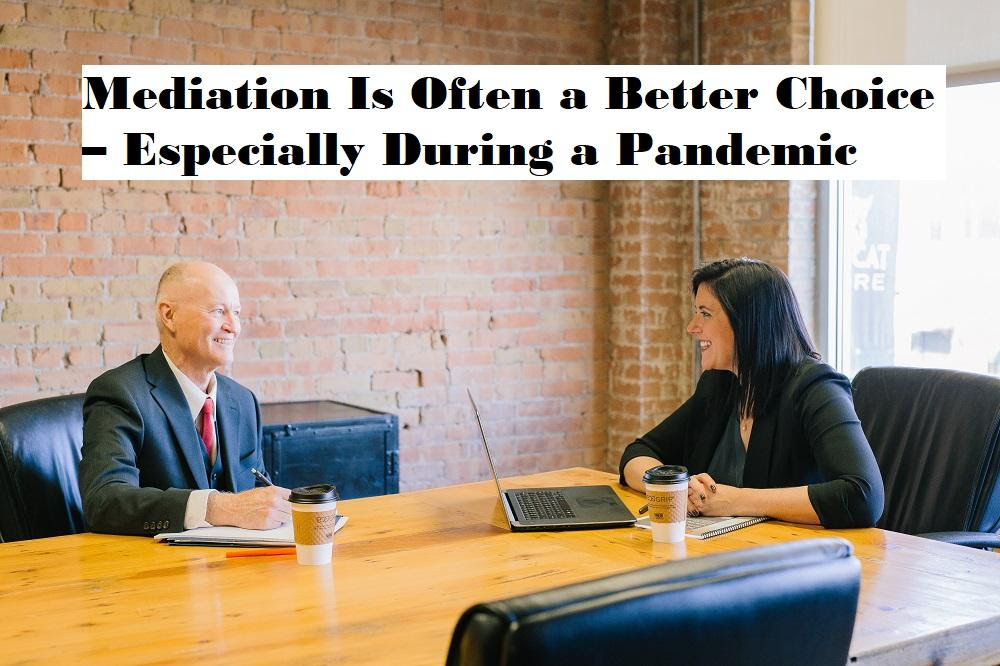Litigation is always a stressful, time-consuming, slow, and expensive way to resolve a dispute, but the COVID-19 pandemic has delayed this already lengthy process.
Courts and lawyers are overloaded with work related to the deferred hearings, pleadings, discovery, and trials. It will probably be years before the backlog is cleared.
This means that if you have a dispute with someone—whether or not a lawsuit has already been filed—you should consider whether mediation might be a good option for resolving that dispute sooner rather than later.
Benefits of Mediation
After all, even without the problems caused by the COVID-19 prompted shut-downs and extensions, settling a dispute is often preferable to resolving the matter through litigation. It’s faster and cheaper, and no matter how good you think your case is, you may lose a lawsuit. If you win, you might not be awarded everything you asked for.
Even if the judgment is everything you wanted, in most cases, you won’t have your attorneys’ fees reimbursed, since the American rule is that, unless there are special statutes or contracts, each party pays the party’s own attorneys’ fees. You could, therefore, discover you’ve spent $100,000 to recover $50,000.
Settlement, on the other hand, allows you and your opponent to fashion a resolution that will work for both of you.
Although it’s commonly said that a good settlement is one where both sides are unhappy, it would be more accurate to say that, while neither party gets everything it wants, both parties are grudgingly satisfied with the arrangement.
This type of resolution can be difficult to work out when emotions are running high, but a mediator may be able to help.
Despite the pandemic, mediations continue to take place, often using video-conferencing platforms such as Zoom and GoToMeeting, allowing the dispute to be resolved much sooner than if the parties began (or continued) litigation.
What Exactly Is Mediation?
A mediator is an impartial third party, like a referee in a sporting event, who facilitates dispute resolution. Typically, the mediator is an experienced lawyer or a retired judge.
He or she will usually advise each party about its own weak spots in the case, as well as the strengths of the other party’s case and the probable value of the claim in order to help both sides understand why settlement is beneficial.
The mediator may also help resolve the dispute by sharing new insights. Often a mediator can think of a win-win solution or suggest some non-economic forms of resolution that work better than a monetary payment.
Because mediation isn’t binding, if you still aren’t able to agree on a resolution, you can move ahead with litigation.
Mediation should be distinguished from arbitration. Mediation is voluntary and, as we mentioned above, nonbinding, whereas arbitration may be compelled in certain circumstances, and the arbitrator is a decision-maker.
*****
Members of this firm have represented plaintiffs and defendants in mediations and arbitrations, and have also served as mediators and arbitrators. Please feel free to contact us if you have any questions about mediation or if you need help resolving a dispute.
Photo by Amy Hirschi on Unsplash






